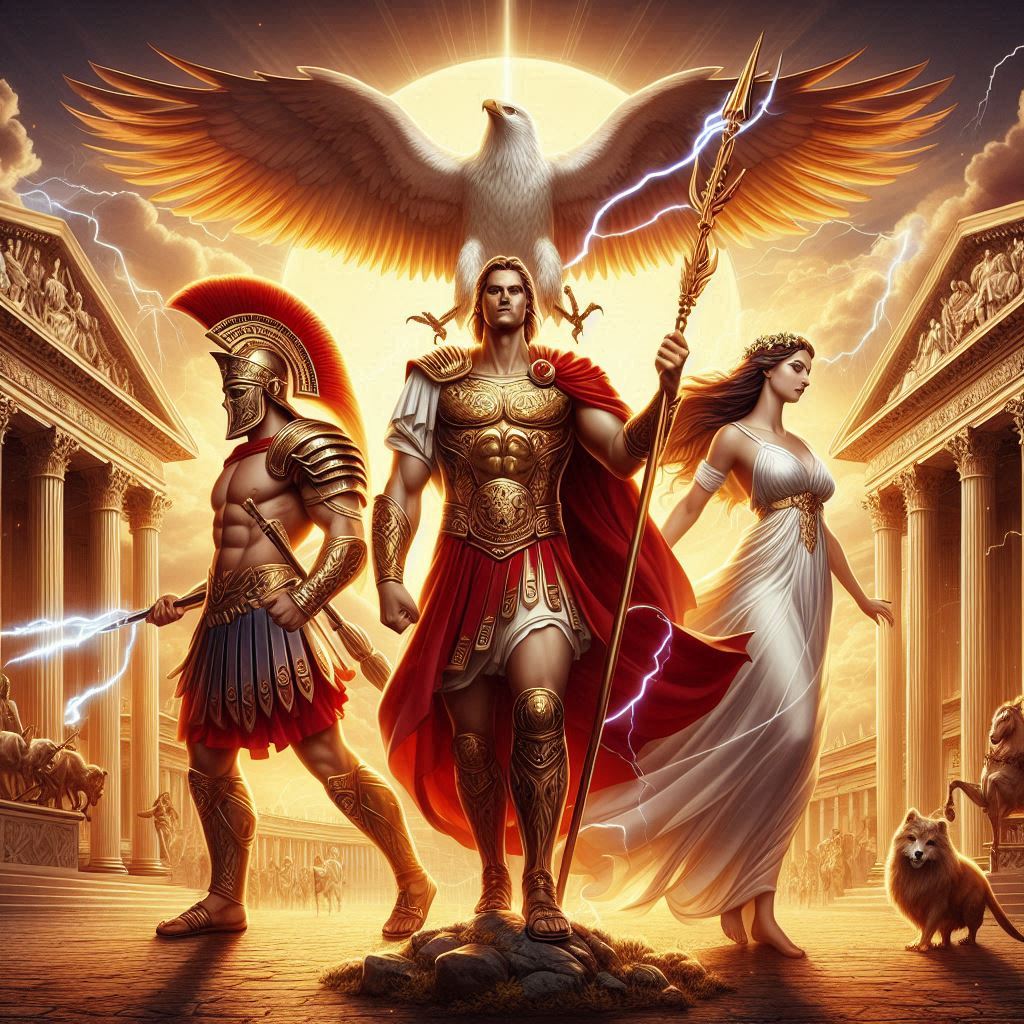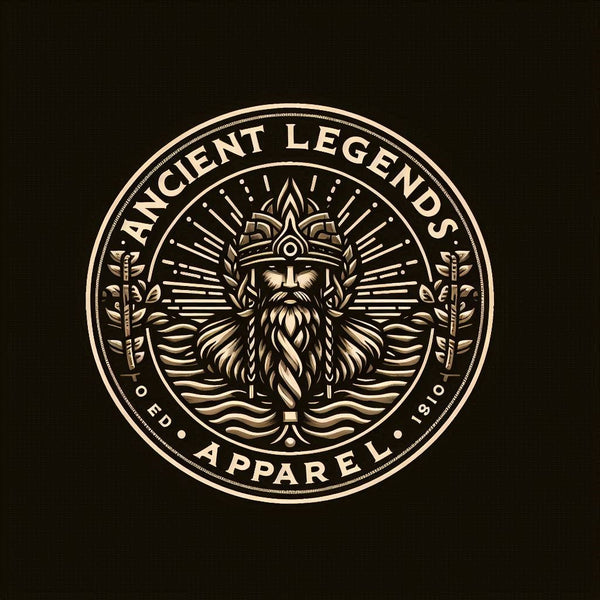
Jupiter, Mars, and Venus: The Roman Gods That Shaped History
Karl FinnbogasonShare
The ancient Romans were deeply religious, believing that their gods played a crucial role in shaping their destiny and empire. Among the many deities in their pantheon, three gods stood out as pillars of Roman civilization—Jupiter, Mars, and Venus.
These gods were not only central to religious life but also influenced politics, warfare, and culture in ways that would shape the Roman world and leave a lasting impact on Western civilization.
In this article, we will explore the roles of Jupiter, Mars, and Venus, their influence on Roman society, and their enduring legacy in modern times.
Jupiter: King of the Gods and Guardian of Rome
Domain: Sky, Thunder, Law, Justice, and Kingship
Symbols: Lightning Bolt, Eagle, Oak Tree, Scepter
Jupiter (Iuppiter) was the supreme deity of Roman mythology, equivalent to the Greek god Zeus. He was the protector of Rome and enforcer of justice, believed to oversee all aspects of law, governance, and military victories.
1. Jupiter’s Role in Roman Society
Jupiter was considered the divine father of Rome, and his influence extended beyond mythology into everyday life:
- Ruler of the Roman Pantheon – He sat atop the hierarchy of gods, ensuring order in both heaven and earth.
- Patron of the Roman State – Jupiter’s favor was sought before battles, political decisions, and important events.
- Enforcer of Justice – He symbolized oaths, treaties, and laws, ensuring fairness and divine judgment.
2. The Temple of Jupiter Optimus Maximus
One of the most significant structures in Ancient Rome was the Temple of Jupiter Optimus Maximus, located on the Capitoline Hill. This temple was the heart of state religion, where:
- Victorious generals offered sacrifices after battle.
- The Roman Senate gathered to seek divine guidance.
- Consuls and leaders swore oaths of office under Jupiter’s watchful eye.
3. Jupiter’s Lasting Influence
Jupiter’s legacy remains strong today:
- The word “Jovial” comes from Jove, a form of Jupiter’s name, meaning optimistic and cheerful.
- Many planets and celestial bodies are named after Roman gods, with Jupiter being the largest planet in our solar system.
- His image still appears in art, literature, and even government institutions, symbolizing power and justice.
Mars: The God of War and Rome’s Divine Protector
Domain: War, Military, Strength, and Protection
Symbols: Spear, Shield, Wolf, Woodpecker
Mars (equivalent to the Greek Ares) was one of the most revered gods in Rome, playing a central role in warfare and the expansion of the empire. Unlike his Greek counterpart, Mars was not just a chaotic bringer of violence—he was a strategic and disciplined god, representing military honor and Roman might.
1. Mars and the Roman Army
Mars was worshipped as the guardian of Roman soldiers, influencing the structure and discipline of the Roman legions.
- Roman soldiers prayed to Mars before battles, seeking victory and protection.
- The Campus Martius, a large training ground in Rome, was named after him, where troops prepared for war.
- He was considered the father of Romulus, the legendary founder of Rome, strengthening his link to the empire’s origins.
2. Festivals and Rituals Honoring Mars
- March (Martius) was named after Mars, as it marked the beginning of military campaigns.
- The Festival of Mars included ceremonies, sacrifices, and parades of warriors in his honor.
- The Salii Priests, a group of Roman priests, performed a sacred dance in honor of Mars, symbolizing his connection to Rome’s military success.
3. Mars’ Influence on Modern Culture
- The planet Mars is named after the god, symbolizing its red, blood-like appearance.
- The Martial arts derive their name from Mars, emphasizing combat and discipline.
- His legacy continues in war memorials and military traditions, honoring courage and sacrifice.
Venus: The Goddess of Love, Beauty, and Rome’s Ancestral Mother
Domain: Love, Beauty, Fertility, and Victory
Symbols: Dove, Rose, Seashell, Mirror, Apple
Venus (Greek Aphrodite) was not only the goddess of love and beauty but also played a significant role in Roman state mythology. She was seen as the divine mother of Rome, through her son Aeneas, who, according to legend, escaped Troy and founded the Roman race.
1. Venus as Rome’s Ancestral Goddess
The Romans believed that their origins were directly connected to Venus:
- Aeneas, the Trojan hero, was said to be the son of Venus, making her the divine ancestor of the Roman people.
- The Julius Caesar and Augustus lineage claimed to descend from Venus through Aeneas, strengthening their right to rule.
- Venus became the goddess of Rome’s prosperity, influencing politics and public festivals.
2. The Worship of Venus in Rome
- The Temple of Venus Genetrix was built by Julius Caesar, honoring Venus as the mother of the Roman people.
- Venus Victrix (Venus the Victorious) was invoked before battles, believing she granted charm and fortune to warriors.
- Venus’ Festivals, like Veneralia, were celebrated by women, honoring her as a goddess of love and fertility.
3. Venus’ Enduring Influence
Venus remains one of the most iconic Roman deities, influencing:
- Fashion and beauty brands, using her name and image to symbolize elegance.
- Art and sculpture, inspiring Renaissance artists like Botticelli’s The Birth of Venus.
- Romance and love, with Venus being synonymous with passion and attraction.
- Astronomy, as the planet Venus, the brightest in the night sky, is named after her.
The Legacy of Jupiter, Mars, and Venus
The gods Jupiter, Mars, and Venus were far more than just mythical figures; they were integral to the Roman identity, shaping everything from religion and warfare to governance and social values. Their influence can still be seen today in language, astronomy, military traditions, and art.
- Jupiter remains a symbol of leadership and justice.
- Mars continues to represent war, discipline, and strategy.
- Venus embodies beauty, love, and the enduring mythology of Rome’s origins.
Through their legends, these gods helped shape one of the greatest civilizations in history, ensuring their mythological and cultural impact remains eternal.
